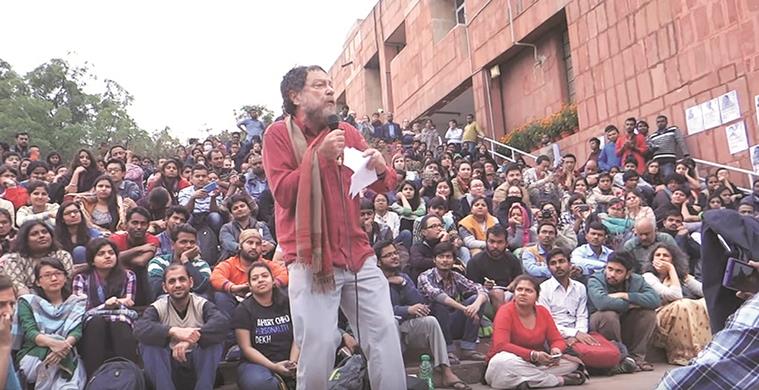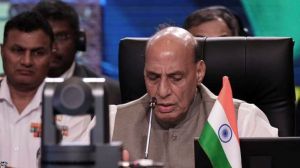Stay updated with the latest - Click here to follow us on Instagram
JNU nationalism class: Visiting prof talks about ‘unfreedom’, being the ‘other’ in one’s own homeland
Sitas talked about how colonialism brought about the concept of the ‘other’.
 Ari Sitas at JNU. Express
Ari Sitas at JNU. Express
As discussions and debates rage on across the country on the topics of nationalism and freedom of expression, students at the second open class on nationalism at Jawaharlal Nehru University (JNU) Friday were told that freedom was a “long process”. “Freedom is not in the Constitution the day it is declared, it is a long process for each of us to remove the constraints which keep us unfree,” South African sociologist Ari Sitas told the class.
Drawing parallels between the colonialism of India and South Africa, Sitas said, “Nationalism in both countries promised a balance between freedom and equality. Neither is getting it right, but at least they promised it. You can see how this definition would be more complex than one which just wants to bring back the ancient past.”
Sitas said the concept of nationalism originated in two ways. It first emerged as a response to colonial powers, when the colonised started realising that they too had a long rich history and refused to be treated a certain way. Secondly, nationalism was also envisaged as a work of imagination, of putting together different regions.
Sitas talked about how colonialism brought about the concept of the ‘other’. “To understand nationalism, we have to look into how European powers began foraging outside their continent before moving towards settlements. These settlements started creating conditions of ‘otherisation’, where all of a sudden you are the other in a place where you were standing till yesterday,” he said.
Citing the example of slavery, Sitas said attempts to look for gold and diamonds brought the Europeans to South Africa, and ultimately turned the indigenous people into slaves, who dug out these objects for Europeans. “You needed the labour for yourself, but you needed them to be excluded at the same time,” explained Sitas.
Speaking on how India is perceived as a “laboratory of the national question”, Sitas said, “I hope that JNU, as the custodian of the national question, for which it was created, still keeps up the tradition of thinking”.







